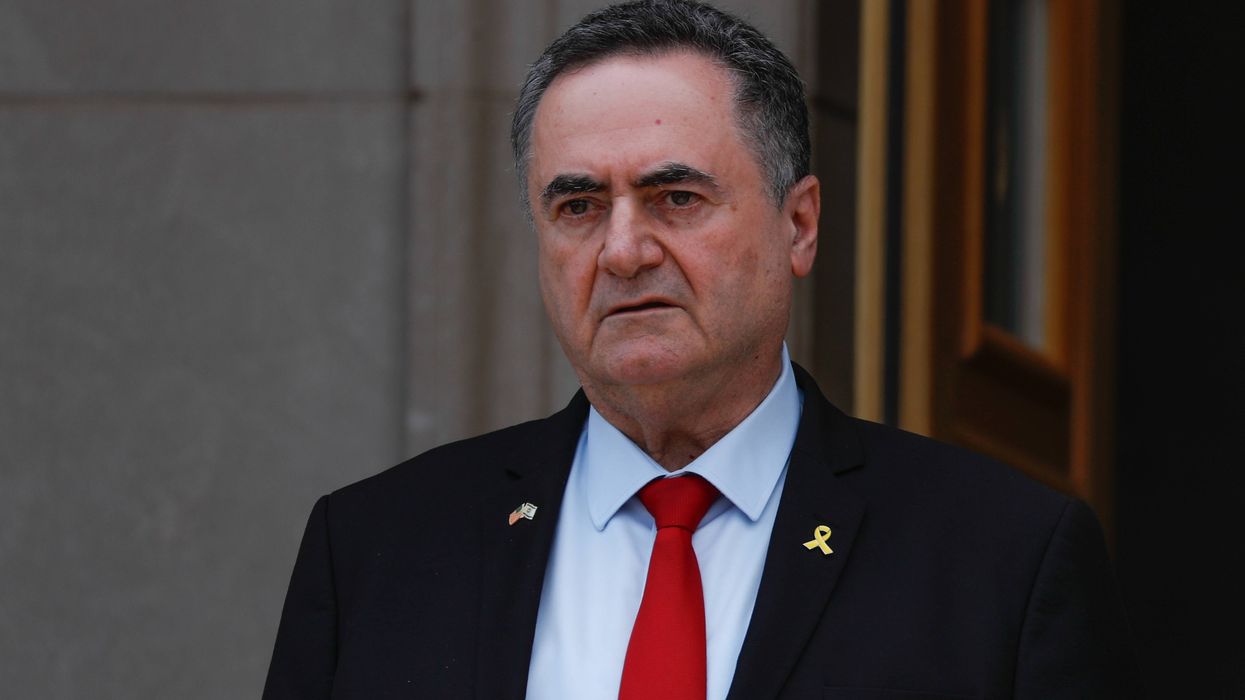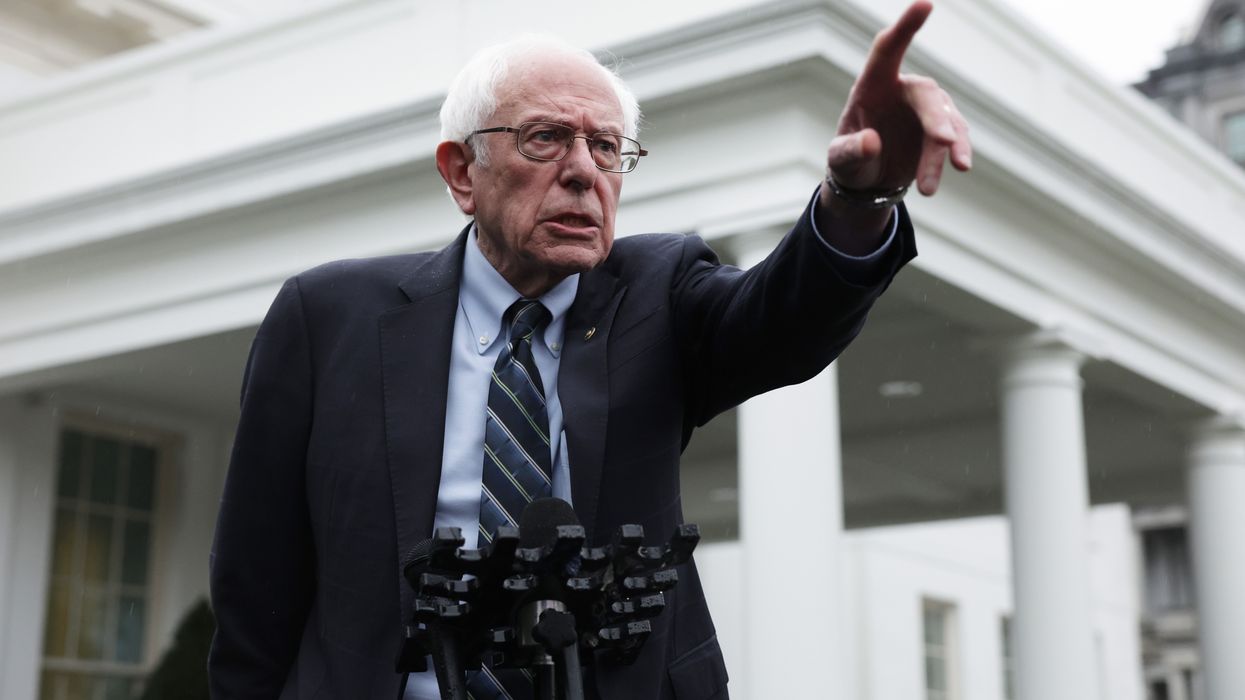March, 27 2012, 03:39pm EDT

US: Implement Farm Safety Rules for Children
Legislation Before Congress Would Endanger Young Farmworkers
WASHINGTON
Legislation introduced in the US Congress in March 2012 to block proposed safety rules for child farmworkers will endanger children who work on farms, said advocates from the Child Labor Coalition (CLC), representing more than two dozen organizations concerned with protecting working youth. The group called on the US Department of Labor (DOL) to implement immediately its proposed updates to safety rules listing dangerous agricultural tasks that are off limits to hired child farmworkers.
"The Department of Labor's proposed safety rules are rooted in expert research and designed to protect child farmworkers," said Sally Greenberg, executive director of the National Consumers League and the co-chair of the CLC. "Agriculture has long been exempt from many child labor and occupational safety protections granted to all other industries. As new farm equipment is developed and our knowledge of pesticides and other risks to children evolve, it only makes sense to update the list of tasks that employers should not be allowed to hire children to do."
The 15 proposed rules - known as "hazardous occupation orders" - would, for the first time in decades, update the list of farm tasks considered too dangerous for children under age 16 working for hire. New restrictions would include operating certain heavy machinery, working in silos and grain storage facilities, and handling pesticides.
Bill S. 2221, introduced on March 21 by Senators John Thune (R-SD) and Jerry Moran (R-Kan), would stop the Labor Department from issuing the occupational child safety rules. A version was introduced March 7 in the House (H.R. 4157)by Rep. Tom Latham (R-Iowa), with the misleading title, "Preserving America's Family Farms Act."
The Department of Labor has long held responsibility for restricting employers from hiring children to do tasks that are considered hazardous. In agriculture, those restrictions lift at age 16; while in all other jobs, hazardous work cannot be done until age 18. The rules do not apply to children working on farms owned or operated by their parents, and Secretary of Labor Hilda Solis said at a House hearing recently that she intends to expand the "parental exemption" to allow children to work without safety restriction on farms owned by other relatives.
Agricultural exemptions to US child labor law allow children to work for hire at age 12 on any farm with their parents' consent. There is no minimum age for children to work on small farms.
Agriculture is the most dangerous industry open to children. Three quarters of working children under age 16 who died from work-related injuries in 2010 worked in agriculture. Thousands more are injured each year. Agricultural injuries tend to be much more severe than other youth injuries according to a new study in the April 2012 edition of the journalPediatrics, resulting in a hospitalization rate that is 10 times as high as that in all other industries.
"As a former child farm worker, I know how dangerous the fields can be," said Norma Flores Lopez, the Children in the Fields Campaign Director for the Association of Farmworker Opportunity Programs. "Pesticides, razor-sharp tools, and farm machinery were ever-present dangers. Last summer two 17-year-olds in Oklahoma lost their legs in a grain augur accident. Banning grain facility work, which killed 26 workers in 2010, would prevent those tragedies from happening to others."
The proposed legislation inaccurately suggests that the proposed safety rules would make it difficult for children to work or get hands-on training on farms. Instead the Department of Labor's proposed rules merely require more rigorous training for some hazardous work and remove training exemptions for other tasks.
"The Department of Labor's proposed safety rules would be a huge leap forward in keeping children safer while they're at work and while they're learning to be farmers," said Zama Coursen-Neff, deputy children's rights director at Human Rights Watch. "Job training for farmworker youth is important, but it shouldn't involve the few tasks that experts find are most likely to kill and maim them."
The proposed legislation also inaccurately implies that occupational child safety rules would be an attack on the family farm.
"The proposed rules represent long-overdue protections for children working for hire in farm communities," said Reid Maki, the CLC coordinator. "They will save lives and preserve the health of farm children so they can grow up to be farmers. The department should implement them as soon as possible."
"We must push back against the attacks against safety protections for children," said Lorretta Johnson, secretary-treasurer of the American Federation of Teachers and a co-chair of the CLC. "It is our task to protect the most vulnerable in our society and all over the world. All children should be afforded the opportunity to go to school and thrive and not be placed in harm's way by working in the fields or in other dangerous occupations."
Human Rights Watch is one of the world's leading independent organizations dedicated to defending and protecting human rights. By focusing international attention where human rights are violated, we give voice to the oppressed and hold oppressors accountable for their crimes. Our rigorous, objective investigations and strategic, targeted advocacy build intense pressure for action and raise the cost of human rights abuse. For 30 years, Human Rights Watch has worked tenaciously to lay the legal and moral groundwork for deep-rooted change and has fought to bring greater justice and security to people around the world.
LATEST NEWS
YouTube, TikTok Deleted ‘60 Minutes’ CECOT Clips Amid Paramount Takedown Push
The segment on the notorious torture prison—where the Trump administration has been unlawfully deporting Venezuelans—went viral on social media after being inadvertently aired in Canada.
Dec 23, 2025
Websites including YouTube and TikTok this week removed posts of a CBS News "60 Minutes" segment on a notorious prison in El Salvador, where Trump the administration has been illegally deporting Venezuelan immigrants, after being notified that publishing the clip violated parent company's copyright.
The segment on the Terrorism Confinement Center (CECOT)—which was intended to air on Sunday's episode of "60 Minutes"—was pulled by right-wing CBS News editor-in-chief Bari Weiss, who claimed that the story "was not ready" for broadcast, despite thorough editing and clearance by key company officials.
“Our story was screened five times and cleared by both CBS attorneys and Standards and Practices," said "60 Minutes" correspondent Sharyn Alfonsi, who reported the segment. “It is factually correct. In my view, pulling it now, after every rigorous internal check has been met, is not an editorial decision, it is a political one.”
The segment—which can still be viewed on sites including X—was shared by social media users after a Canadian network received and broadcast an original version of the "60 Minutes" episode containing the CECOT piece prior to CBS pulling the story. The social media posts containing the segment were reportedly removed after CBS parent company Paramount Skydance filed copyright claims.
A CBS News representative said that “Paramount’s content protection team is in the process of routine take down orders for the unaired and unauthorized segment.”
Weiss—who also founded and still edits the Paramount Skydance-owned Free Press—has faced criticism for other moves, including presiding over the removal of parts of a previous "60 Minutes" interview with President Donald Trump regarding potential corruption stemming from his family’s massive cryptocurrency profits.
On Tuesday, Axios reported that Weiss is planning a broad overhaul of standards and procedures at the network, where she was hired by Paramount Skydance CEO and Trump supporter David Ellison in October, despite a lack of broadcasting experience.
Keep ReadingShow Less
Israeli Defense Minister Tries to Walk Back Vow to 'Never Leave Gaza,' Build Settlements
The remarks drew critical responses, including from other Israelis and the White House.
Dec 23, 2025
Israeli Defense Minister Israel Katz "said the silent part out loud" on Tuesday, then promptly tried to walk back his comments that his country would not only never leave the Gaza Strip, but also reestablish settlements in the decimated exclave.
Israel evacuated Jewish settlements in Gaza two decades ago, but some officials have pushed for ethnically cleansing the strip of Palestinians and recolonizing it, particularly since the Hamas-led October 7, 2023 attack and the devastating Israeli assault that followed.
The Times of Israel on Tuesday translated Katz's remarks—made during an event about expanding Beit El, a Jewish settlement in the illegally occupied West Bank—from Hebrew to English:
"With God's help, when the time comes, also in northern Gaza, we will establish Nahal pioneer groups in place of the settlements that were evacuated," he said. "We'll do it in the right way, at the appropriate time."
Katz was referring to the Nahal military unit that, in part, lets youths combine pioneering activities with military service. In the past, many of the outposts established by the unit went on to evolve into full-fledged settlements.
"We are deep inside Gaza, and we will never leave Gaza—there will be no such thing," Katz said. "We are here to defend and to prevent what happened from happening again."
The so-called peace plan for Gaza that US President Donald Trump and Israeli Prime Minister Benjamin Netanyahu announced at the White House in late September notably states that "Israel will not occupy or annex Gaza," and "the Israel Defense Forces (IDF) will withdraw based on standards, milestones, and timeframes linked to demilitarization."
Gadi Eisenkot, a former IDF chief of staff who launched a new political party a few months ago, responded to Katz on social media, writing in Hebrew, "While the government votes with one hand in favor of the Trump plan, it sells myths with the other hand about isolated settlement nuclei in the strip."
"Instead of strengthening security and bringing about an enlistment law that will bolster the IDF, the government, driven by narrow political considerations, continues to scatter irresponsible and empty declarations that only harm Israel's standing in the world," he added.
The White House was also critical of Katz's comments, with an unnamed official saying that "the more Israel provokes, the less the Arab countries want to work with them."
"The United States remains fully committed to President Trump's 20-point peace plan, which was agreed to by all parties and endorsed by the international community," the official continued. "The plan envisions a phased approach to security, governance, and reconstruction in Gaza. We expect all parties to adhere to the commitments they made under the 20-point plan."
Later Tuesday, Katz's office said that "the minister of defense's remarks regarding the integration of Nahal units in the northern Gaza Strip were made solely in a security context. The government has no intention of establishing settlements in the Gaza Strip. The minister of defense emphasized the central principle of border defense in every arena: The IDF is the first and last line of defense for Israel's citizens, and the state of Israel relies for its protection solely on it and on the security forces."
Katz became defense minister in November 2024, just weeks before the International Criminal Court issued arrest warrants for his fired predecessor, Yoav Gallat, and Netanyahu over Israel's assault on and blockade of Gaza. When Katz took on the new role after serving as foreign minister, Palestine defenders accused the prime minister of swapping one "genocidal lunatic" for another.
Israel faces an ongoing genocide case at the International Court of Justice for its mass slaughter of Palestinians in Gaza. As of Tuesday, local officials put the death toll since October 2023 at 70,942, with another 171,195 Palestinians wounded, though global experts warn the true tallies are likely far higher.
At least 406 of those confirmed deaths have occurred since Israel and Hamas agreed to a ceasefire that took effect October 10. In a Monday letter demanding action from the White House, dozens of Democratic US lawmakers noted Israel's "continued bombardment against civilians, destruction of property, and insufficient delivery of humanitarian aid."
Keep ReadingShow Less
Sanders Slams Private Equity Scrooges Ending Paid Holidays for Walgreens Workers
"While the rich get richer, workers are struggling, and your decision to cut workers' paid vacation is making the problem worse."
Dec 23, 2025
Independent US Sen. Bernie Sanders on Tuesday urged the private equity firm that recently acquired Walgreens to reverse its decision to strip hourly workers at the second-largest US pharmacy chain of paid days off on Christmas and other major holidays.
After Sycamore Partners finalized its $10 billion purchase of Walgreens in late August, the pharmacy chain—now headed by CEO Mike Motz—eliminated paid holidays for New Year's Day, Memorial Day, Independence Day, Labor Day, Thanksgiving, and Christmas. Workers were notified of the move, which was first reported by Bloomberg, in October.
The move is typical of what private equity firms—sometimes called vulture capitalists—often do in order to maximize profits. In addition to slashing paid time off and benefits, they often reduce or freeze pay, fire workers, close locations, introduce aggressive sales targets, and reduce job security by replacing full-time positions with hourly or independently contracted workers. Walgreens announced last year that it planned on closing around 1,200 of its roughly 8,000 US stores, citing their struggling performance.
"This Thanksgiving, Walgreens' hourly workers faced the impossible choice between losing pay and spending the holiday with their loved ones," Sanders (Vt.)—who is the ranking member of the Senate Health, Education, Labor, and Pensions (HELP) Committee—wrote Tuesday in a letter to Sycamore Partners founder and managing director Stefan Kaluzny.
"Walgreens employs 220,000 employees, the vast majority of whom are hourly workers... Sycamore Partners' decision to cut paid holidays for these hourly workers is unfortunately not surprising," the senator continued. "The firm follows the private equity playbook of buying businesses and aggressively extracting profit while using and abusing workers."
"For example, just one year after Sycamore Partners purchased Staples, the firm extracted $1 billion from the company as it closed 100 stores and laid off 7,000 workers," Sanders noted. "That same year, Sycamore Partners drove Nine West into bankruptcy and was accused of siphoning off over $1 billion in funds."
"Meanwhile, from 2016-22, companies owned by Sycamore Partners racked up over $3 million in labor violations, including wage-and-hour and workplace safety and health violations," he added.
During the holiday season, we all want to spend time with our loved ones. And yet, just two months after buying Walgreens for $10 billion, the private equity firm Sycamore Partners stripped hourly workers of paid vacation, including Christmas and New Year’s Day. Shameful.
[image or embed]
— Senator Bernie Sanders (@sanders.senate.gov) December 23, 2025 at 9:41 AM
Sanders contrasted a reality in which "60% of Americans are living paycheck to paycheck" with the fact that "more private equity managers make over $100 million annually than investment bankers, top financial executives, and professional athletes combined."
"While the rich get richer, workers are struggling, and your decision to cut workers' paid vacation leave is making the problem worse," he stressed. "Some Walgreens workers make as little as $15 an hour. Cutting their paid leave will make it even more difficult for these workers to pay for housing, childcare, healthcare, and groceries."
"In short," Sanders concluded, "Sycamore Partners is forcing workers to sacrifice their basic needs for private equity profit."
Keep ReadingShow Less
Most Popular


